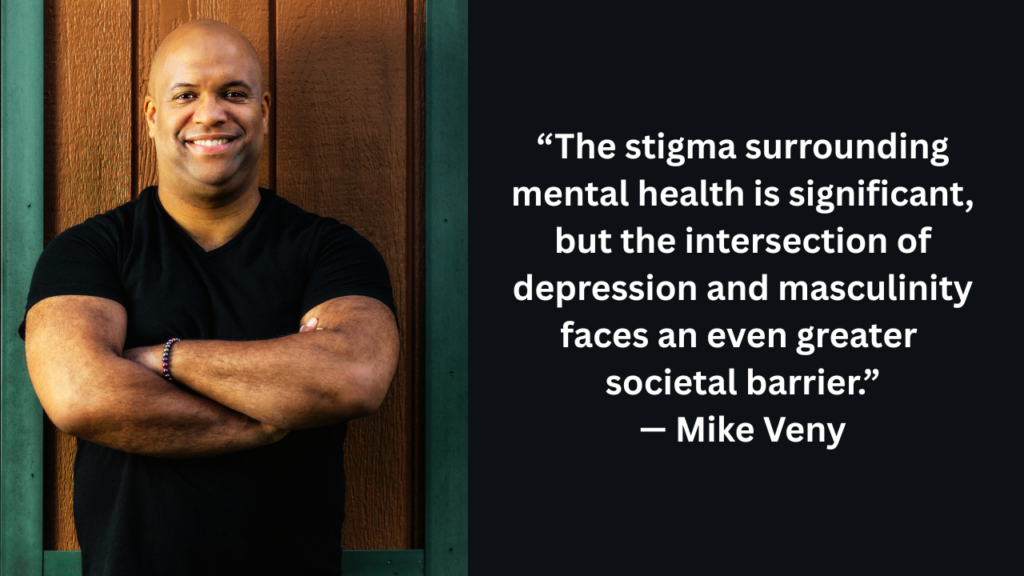According to the Merriam-Webster dictionary, the word “emasculation” refers to:
- Making a man feel less masculine.
- Depriving a man of his strength and/or role.
My first encounter with this term came during a therapy session in 2012. The moment my therapist mentioned it, I experienced a whirlwind of emotions – surprise, confusion, fear, and defensiveness. The concept that my interactions with certain individuals could diminish my sense of masculinity was entirely foreign to me. I strongly resisted the notion that this might be the root cause of my depression. The session proved particularly challenging, perhaps intensified by having a female therapist.
These feelings of emasculation would surface during everyday interactions with women, often resulting in power dynamics issues in both my romantic and professional relationships. My childhood history includes expulsion from three different schools due to behavioral problems. Each instance involved conflicts with female authority figures, experiences that would later shape my adult interactions with women in positions of power.
The relationship between depression and emasculation for men is deeply interconnected, making this understanding crucial for recovery. Through my personal journey, I’ve discovered that perceived weakness in masculinity can trigger depression, while depression itself can foster feelings of emasculation. A significant revelation came when I learned to differentiate between depression and self-esteem, often mistakenly conflated. Therapy helped me understand that multiple emotional states can coexist – life isn’t simply a matter of being happy or sad.
Depression’s non-linear nature means it fluctuates constantly, with varying intensities at different times. Even with comprehensive safeguards, treatments, and self-care practices in place, it remains somewhat unpredictable and uncontrollable. The complexity of managing these emotional states while maintaining a sense of masculinity presents a unique challenge.
Society associates masculinity with characteristics like power, control, competitiveness, independence, and aggression. As a man, these traits resonate deeply with me. When they’re compromised, I experience a rapid downward spiral. These emasculation feelings now surface in my role as a business owner. When blog analytics fall short of expectations or financial challenges arise despite years of sustained business operations, my masculine identity takes a hit. I find myself questioning my progress compared to others, grappling with society’s success metrics. The journey of reconciling traditional masculine expectations with mental health challenges continues to be a complex and evolving process.
The stigma surrounding mental health is significant, but the intersection of depression and masculinity faces an even greater societal barrier. This stems from a deeply rooted cultural perception that views depression and masculinity as opposing forces – depression being associated with weakness, while masculinity represents strength. This false dichotomy, embedded in our societal consciousness, creates substantial obstacles for men seeking help or acknowledging their emotional struggles.
The Foundation of These Beliefs
A powerful illustration comes from Jed Diamond of MenAlive.com, who shares a formative childhood memory: “At age 5, I overheard my mother and other women discussing their husbands in the kitchen. Their conversations were filled with criticism – ‘he can’t get a job,’ ‘he’s always at home,’ ‘he acts like one of the children.’ What struck me most wasn’t just their words, but their tone – a mixture of pity and contempt for men who weren’t meeting their expected roles.”
These early experiences profoundly shape our understanding of masculinity and achievement. We develop surrounded by societal narratives about manhood – expectations about career advancement, marital success, family responsibilities, and social standing. When we struggle to meet these expectations, particularly during depressive episodes, they transform into overwhelming burdens. The constant pressure to maintain an appearance of strength while battling internal struggles often leads to profound feelings of isolation and self-doubt.
Through personal experience, I’ve learned that true healing requires finding balance between strength and vulnerability. It means recognizing that experiencing depression doesn’t diminish one’s masculinity, and that seeking support demonstrates courage rather than weakness. Success in professional endeavors shouldn’t be the sole measure of a man’s worth.
This understanding emerged from a challenging personal journey. I had made an internal vow, influenced by those early experiences, to never allow myself to be viewed as inadequate or struggle with keeping consistent work coming in. This promise wasn’t merely about maintaining employment – it was about preserving my masculine identity and self-worth. This relentless drive pushed me to work beyond reasonable limits, constantly striving to prove my value. However, several years ago, despite my intense efforts, my business faced significant financial challenges that threatened my livelihood. This situation triggered a profound depression, shaking my core identity. The echoes of those childhood conversations still resonate, serving as painful reminders of what I once perceived as personal failure.
The experience taught me that true masculinity isn’t about maintaining an impenetrable facade of strength. Instead, it’s about having the courage to acknowledge vulnerability while maintaining resilience. This realization has been crucial in my ongoing journey of reconciling traditional masculine expectations with mental health challenges.
I observe this recurring pattern among men facing unemployment or job insecurity. Like many others, I understand the deep-seated fear of losing one’s ability to provide for their family. This anxiety extends far beyond financial implications – it challenges our fundamental understanding of masculine identity and societal role.
The roots of these beliefs often trace back to our parental relationships, particularly with both mother and father figures. Fathers especially serve as our primary reference points for masculinity, their presence or absence profoundly shaping our understanding of manhood in society.
“Depression in men resonates deeply with me. I witnessed my father’s silent battle with untreated depression, his fear of stigma and potential job loss preventing him from seeking help. He succumbed to heart disease at 62, just two years after receiving a bipolar disorder diagnosis.” This heart-wrenching account demonstrates the potentially fatal consequences when depression remains untreated due to deeply embedded fears.
— Tom Roberts
Breaking the Silence: Men’s Resistance to Mental Health Support
Many individuals avoid seeking help because acknowledging depression feels like a challenge to their masculine identity. Society more readily accepts displays of male anger, as it aligns with traditional masculine stereotypes. Through my journey, I’ve discovered that anger often serves as a socially acceptable mask for depression – a way to externalize internal suffering.
“My initial reaction to being diagnosed with bipolar disorder and psychotic features was complete denial. I thought, ‘This can’t be happening to me… I was a WCAL wrestling champion! I played on our class’s most successful football team! This isn’t who I am – I just need to show more strength!’ My athletic achievements had become my shield of masculinity, but they couldn’t protect me from my mental health reality.
For twelve months during my darkest period, I deliberately suppressed all tears. The physical manifestation of emotional pain completely ceased; I denied myself this fundamental human mechanism for processing trauma. My emotional shutdown was complete, effectively numbing myself to all feelings.”
— Kevin Hines
This powerful testimony reveals how men often sacrifice their emotional well-being to maintain an appearance of strength.
Charting a Path Forward: Supporting Men’s Mental Health
My personal journey through depression has involved examining masculinity’s role in my life. Through therapeutic work, conversations with other men, and extensive reading, I’ve gained valuable insights. These experiences have led me to important realizations about the relationship between masculine identity and mental health.
Our society lacks balanced role models for healthy masculinity, often presenting us with polarizing extremes – either hyper-masculine stereotypes or completely emasculated figures. This makes discovering an authentic expression of masculinity feel like exploring unknown territory. These masculine and feminine dynamics permeate all our relationships, professional environments, and fundamentally shape how we view ourselves.
Through my personal journey with depression, I’ve discovered three valuable insights that have enhanced both my sense of masculinity and my ability to manage depression. A crucial revelation has been understanding that depression and self-esteem are separate entities that can coexist. My therapist helped me grasp that we can maintain healthy self-esteem while battling depression, and that multiple emotional states can simultaneously create the intricate tapestry of human experience.
One profound realization emerged during a challenging period – healing isn’t a linear journey. It’s a dynamic process with fluctuating moments of progress and setbacks, regardless of the protective measures and treatments we implement. This understanding has been instrumental in accepting the complexity of the healing journey.
Here are three strategies that have proven beneficial:
- Examine your masculine identity. Dedicate time to explore your beliefs about masculinity – their origins, their impact on your development, and whether they contribute positively to your well-being. Challenge the cultural narratives you’ve inherited about what defines “masculine.”
- Observe masculinity’s influence in daily life. Be mindful of how these dynamics affect your relationships, career, and emotional responses. Recognize when traditional masculine ideals might be hindering genuine connection or authentic expression.
- Develop your vision of healthy masculinity. Understand that true strength emerges from wholeness, not from suppressing aspects of yourself. Consider the kind of man you aspire to be, independent of societal expectations.
Perhaps the most transformative lesson in my masculine journey has been embracing my feminine qualities. As men, our feminine aspects enable deeper self-expression and ultimately strengthen us. This insight has been particularly valuable in my role as a business owner. When business metrics fall short or financial targets aren’t met, these challenges can feel like direct attacks on my masculinity. I’ve had to learn that my worth isn’t defined by these external measures, despite deeply ingrained cultural messages suggesting otherwise.
The journey to healthy masculinity involves integrating all aspects of our personality – both masculine and feminine – while maintaining authenticity in our relationships and professional lives. It’s about finding balance and understanding that true strength comes from embracing our complete selves, not from conforming to rigid societal expectations.
“True masculinity embraces both strength and vulnerability. It’s in accepting our whole selves – including our feminine aspects – that we find our authentic power. When we allow others to support us through our struggles, we don’t diminish our manhood; we enhance it.”
— Kevin Hines
The Hidden Power of Embracing Our Whole Selves
My therapeutic journey has opened new doors of perception, fundamentally shifting how I view myself and my connections with others. It has provided a fresh perspective on my masculine identity and created space for hope and joy to flourish. Through this process, I’ve come to understand that depression and self-worth can exist simultaneously – a nuanced insight that therapy has helped me comprehend.
Robert A. Johnson’s wisdom in “He: Understanding Male Psychology” offers a profound perspective: “The emergence of a new historical era is often accompanied by a corresponding mythological narrative. This myth serves as a prophetic glimpse into the future while offering guidance for navigating the psychological challenges of the time.” This observation has illuminated how deeply embedded cultural narratives about masculinity have shaped my personal evolution.
“My personal transformation began in a place of isolation, paralysis, and shame due to depression. What I discovered was revolutionary – by sharing our vulnerabilities and accepting support, we don’t become diminished; we become empowered. Our authenticity makes us more relatable, not less. Because everyone – yes, everyone – carries their own struggles. This openness creates deeper connections rather than isolation. This realization was transformative for me, especially as a man who, like many others, had believed the opposite to be true.”
— Michael Kasdan, The Good Men Project
Johnson’s insight resonates profoundly: “In relating to his inner feminine nature, a man faces two choices: rejection, which leads to destructive mood swings and self-sabotage, or acceptance, which reveals an inner ally offering warmth and fortitude throughout life’s journey.” This understanding has been fundamental in my path toward integration and wholeness.
For further exploration, consider these resources:
- Modern Men Feel Emasculated
- The Masculine Mystique and Male Depression
- He: Understanding Masculine Psychology by Robert A. Johnson
Throughout this transformative process, I’ve discovered that healing follows no predictable path. There are moments when physical vitality coexists with emotional fragility, creating a complex tapestry of experiences. This journey has taught me that seemingly opposing states can harmoniously coexist, and embracing this duality is essential for authentic self-acceptance.




